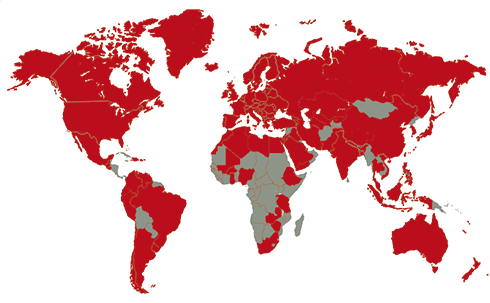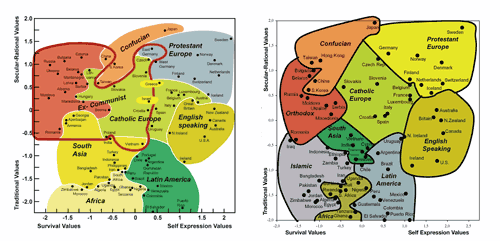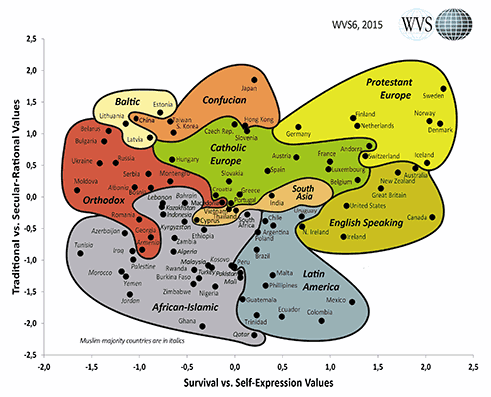The World Values Survey (WVS) is a global research network studying trends and variations in social, political, and cultural values. Starting in 1981, the survey now has been conducted in more than 100 countries, which together include nearly 90 percent of the world population. WVS data offers unparalleled opportunities for detailed comparative work on value change, democratic development, perceptions of aging, young people’s place in society, corruption, trust, and numerous other issues of importance for the future of our societies.
More than one million people annually download WVS data. The data is used both for research and as a basis for reports and analyses by government agencies, organizations, and companies in the countries concerned. Another important group of users are young people at secondary schools and universities. Great care has been taken to make the web-based database simple and useful. WVS data are public and can be accessed via www.worldvaluessurvey.org. The WVS data archive is located in Madrid, and a booklet summarizing the WVS work can be downloaded.
WVS is a nonprofit organization governed by a Board of Directors. The board includes the Secretary General of the WVS, Bi Puranen, who is also a Senior Researcher at the Institute for Futures Studies, Professor Ron Inglehart (President), and Professor Chris Welzel (Vice President). A more detailed description of the WVS organization can be found in the WVSAs Constitution.
The international secretariat of the WVS is located at Institute for Futures Studies (IF), and several researchers at IF use the WVS in their current projects. If you want to have direct contact with someone at WVS, please send us an email at[email protected].

A total of 100 countries have participated in the World Values Survey. Many of them have participated in more than one of the six waves which makes it possible to follow trends over time in the different areas. Click for high resolution picture.
Culture map
The culture map is one of the most famous results from the World Values Survey. The map is a result of the combination of several questions from the survey. Each country is positioned on the map according to the citizens’ values and not according to its geographical location. Thus, Australia, Canada, the USA and the UK become neighbors.
There are currently three maps and the last one was published in January 2015. The map is based on the sixth wave of interviews which were conducted between the autumn of 2010 and the spring of 2014. 61 countries participated and between 1200 and 1500 people from every country answered questions on for example family, work, religion, politics, science, safety, violence and the future.

Culture maps from 1996, WVS4 and 2008, WVS5.
Download the culture map from 1996, WVS4
Download the culture map from 2008, WVS5
The map is surprisingly stable over time: the Nordic countries are found in the top right corner, with low religiosity and a high proportion of the population with so-called emancipative values, a pattern that differs quite significantly from other countries.
Download the questions used to create the culture map (pdf)
Download the position of the countries which participated in the last wave, WVS6 (xls)
All questions and all data are available on the WVS website, www.worldvaluessurvey.org. Look for the title Data & documentation.
Animation
Here is an animation which tries to show the shift in values over time in the countries that have participated in the World Values Survey.










